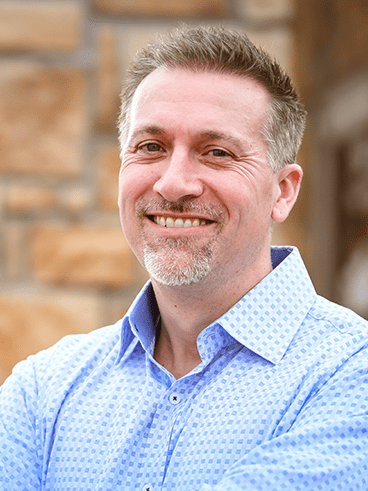Surgery (removing the tonsils and/or adenoids) is recommended when the above problems are excessive or not controlled with conservative medical management.
Voice & Airway Disorders
Home » Denver Voice Doctor
Voice Issues & Problems | Broomfield • Golden • Brighton • Colorado • Denver

Dr. King has undergone additional training in laryngology, a subspecialty field of ENT focusing on voice and airway disorders. Dr. King is uniquely trained in microsurgery of the larynx and is one of only a few fellowship trained laryngologists in the Mountain States area.
Peak ENT offers minimally invasive office-based laser surgery and other procedures of the throat. Dysphonia is a term to describe hoarseness or any change in voice quality. This is a very common symptom affecting about 1/3 of the population at some point in their lives, most often as a result of an upper respiratory infection that resolves in 7-10 days. Hoarseness that persists longer than 3-4 weeks may indicate a more serious problem and warrant scheduling an appointment for further evaluation.
Some of the disorders we treat include:
- Voice Disorder
- Airway Disorders
- Esophageal & Swallowing Disorders
- Vocal Cord Dysfunction (VCD)
- Laryngitis
- Spasmodic Dysphonia
- Vocal Cord Paralysis
Peak ENT and Voice Center is dedicated to your overall well-being and the improvement of your quality of life. As such, Dr. King provides comprehensive services and compassionate care at our Denver voice clinic.
Dr. King caters to the needs of numerous patients in Denver, especially those who use their voices to earn a living. These include teachers, lawyers, receptionists, sales representatives, singers, and sports coaches. Our voice specialist closely observes your condition to customize a treatment plan for you.
In addition to our Denver office, we also have ENT clinics in Broomfield, Golden, and Brighton.
Schedule a consultation at one of our Colorado voice clinics today.

J. Michael King, MD

Peak ENT Departments
Our Voice Department
Voice Disorders
Having Vocal Disorders? We have answers.
Vocal disorders commonly present with a gravelly and hoarse voice. The cause can be a spectrum of disorders and pathologies ranging from benign respiratory infections to pervasive forms of laryngeal cancer. Peak ENT specializes in the early diagnosis and effective treatment of all presenting disorders.

Voice Disorders: Wide Range of Pathologies Can Result in Laryngeal (voice box) Disorders.
Patients typically present “hoarseness,” which is a general term that describes an abnormal sounding voice. There are many causes of hoarseness ranging from benign diseases of the larynx to more concerning malignant cancers.
Common causes of hoarseness include:
- Viral upper respiratory infections (URI)
- Vocal overuse or misuse (yelling, screaming, excessive talking)
- Benign vocal cord masses (nodules, cysts, polyps)
- Benign and malignant tumors (papilloma, granulomas and cancers)
- Acid reflux
- Smoking
- Head and neck cancer (throat cancer)
- Neurological conditions (Parkinson’s, Stroke)
- Post-surgical nerve injury (from intubation, thyroid surgery, spine surgery or heart surgery)
When should you seek help for hoarseness lasting 3-4 weeks or longer?
- Smokers or alcohol abusers (due to increased risk of throat cancers)
- You are not otherwise sick with a cold or flu
- Coughing up blood
- Difficulty swallowing or painful swallowing
- You feel a lump in your neck (enlarged lymph node)
- Hoarseness associated with difficulty breathing
- You are a vocal performer (singer, teacher, public speaker) and it affects your job
NORMAL LARYNX
This video shows an example of normal vocal cords seen on a videostrobe.
Swallowing Problems

Swallowing issues? We can help.
Many times, swallowing problems are a complex set of issues. Peak ENT physicians and staff are experts in solving swallowing problems.
How do we swallow?
The swallowing mechanism involves a series of highly coordinated muscle movements. These movements can be divided into 4 phases:
1. Oral preparatory phase: food is chewed and mixed with saliva, forming into a cohesive collection called a “bolus.” This bolus is positioned on the tongue for the next phase.
2. Oral transit phase: the tongue pushes the prepared bolus from front to back into the pharynx, where the next phase is automatically triggered.
3. Pharyngeal phase: an automated sequence of muscle contractions occurs which lifts the larynx and pulls it forwards, closes the vocal cords, closes a flap called the epiglottis over the vocal cords and airway, directs the food bolus towards the opening of the esophagus and opens the sphincter at the upper end of the esophagus to allow the bolus to pass.
4. Esophageal phase: slowest phase (can take up to 20 seconds). Bolus is transferred from the upper end of the esophagus to the stomach. Gravity helps with this process, as well as coordinated muscle movements in the esophagus called peristaltic waves.
How are swallowing disorders diagnosed?
A comprehensive evaluation by an ENT doctor can often determine the cause of swallowing trouble. In addition to a thorough exam, a procedure called fiberoptic laryngoscopy will likely be recommended. During this simple office procedure, a flexible scope with camera is inserted through the nose to examine the throat and voice box. The patient may be given some different substances to swallow during this test, in which case the test is termed Fiberoptic Endoscopic Evaluation of Swallowing (FEES).
If a cause still cannot be determined, a transnasal esophagoscopy (TNE) may be recommended. During this procedure, a specialized scope is placed through the nose and all the way down the esophagus to the stomach. Traditionally, gastroenterologists perform similar upper-GI endoscopies (Esophagogastroduodenoscopy or EGD) under sedative anesthesia which requires close monitoring and extended recovery time. Otolaryngologists with special training now perform this procedure in the office with minimal discomfort. TNE has proven useful for diagnosing esophageal disorders such as strictures (narrowing), infectious/inflammatory diseases and abnormal pre-malignant or malignant lesions at the gastro-esophageal junction (Barrett’s Esophagus and carcinomas).
Esophageal Cancer
Esophageal Cancer has the fastest growing rate of all cancers in the United States and is the seventh leading cause of cancer deaths world wide. In addition to problems swallowing, many of the early symptoms of esophageal cancer include chronic cough, hoarseness, and globus (sensation that something is stuck in the throat). Long-standing untreated or undiagnosed gastroesophageal reflux (GERD) and laryngopharyngeal reflux (LPR) are considered significant risk factors for developing cancer of the esophagus. Patients with these symptoms should undergo an esophagoscopy and/or barium swallow study for further evaluation and screening.
Tonsillectomy
Surgery to remove the tonsils and/or adenoids is usually recommended to treat persistent, serious, or recurring infections of these tissues, or to address obstruction caused by excessive enlargement of these tissues. There are many methods to perform surgery, but typically a cautery device is used to remove each tonsil through the mouth, cutting the tissue and sealing off bleeding. The adenoids are removed with a similar method, also through the mouth. Most commonly, no stitches are placed. The open areas heal on their own. During the healing phase, the areas will become covered with a scab or “eschar,” which will thicken and may change colors over the first few days. These eschars then dissolve and slough off several days after surgery.
Overall risks related to surgery are low, however the recovery period is predictably long and rough. A severe sore throat is to be expected, which typically gets worse before it gets better, peaking around day 6 or 7 on average. Recovery is usually worse and longer in teenagers and adults than in younger children. Typically children will need about 1 week off from school to recover. Adults may need 2 weeks off work. Heavy physical activity and sports should be avoided for 2 weeks.
The surgeons at Peak ENT will be with you every step of the way during the recovery process. One of our four physicians is always on call and reachable for the group, 24 hours a day, 7 days a week. We do not share calls with other groups, nor do we have residents or mid-level providers covering our calls.

Tonsils & Adenoids
Tonsils & Adenoids
Tonsils and Adenoids are similar to lymph nodes (sometimes erroneously called “glands”) in the neck, groin and armpits. Tonsils are two round lumps in the back of the throat on each side of the tongue. Adenoids are high in the back of the throat behind the palate and are not normally visible through the mouth. Both tonsils and adenoids “sample” bacteria and viruses that enter the mouth or nose and are part of the immune system. Sometimes however, they can do more harm than good.

The two most common problems are:
- Infection (either recurring infections requiring antibiotics, or a chronic smoldering infection that never really goes away)
- Significant enlargement that causes problems with obstruction (nasal obstruction, mouth-breathing, snoring, sleep apnea and/or swallowing problems)
Other problems with the tonsils which may require treatment:
- Abscess around the tonsil (peritonsillar abscess)
- Cancer or suspected cancer of the tonsil
- Tonsilloliths (Tonsil stones) – collections of white debris within pockets of the tonsils that is foul-smelling and can cause bad breath and chronic irritation
Airway Disorders
Airway Disorders
Airway disorders include abnormalities that affect the anatomy of the upper airway (throat and trachea). Patients present with difficulty breathing that may be gradual or sudden. Causes of airway obstruction include swelling from infections, inflammatory diseases, benign or malignant tumors, or scar tissue that narrows the breathing passage.
Specific treatments are aimed at the underlying cause and may include medications and/or surgical intervention. Our physicians perform an in-office endoscopy with specialized scopes to make the diagnosis quickly and safely.
Lasers
Lasers are frequently used to treat airway disorders. Peak ENT physicians have extensive training in the use of a variety of laser types to treat laryngeal and tracheal lesions. Advanced technology has made possible minimally invasive techniques that are sometimes carried out under local anesthesia (without sedation) in the Summit Office in Broomfield. Dr. King is the only ENT surgeon in the state of Colorado performing these procedures.
Subglottic Stenosis
The subglottis is the upper trachea just below the vocal cords. Subglottic stenosis (narrowing) can result from infections, autoimmune diseases, severe reflux disease, or trauma, however in some cases no cause can be identified (idiopathic). When the narrowing significantly impairs breathing, laser surgery and dilation of the narrowed segment can often achieve a normal tracheal airway diameter.
Throat Cancer
Denver Throat Cancer Doctor

Every year, more than 55,000 Americans will develop cancer of the head and neck, including throat cancer. Around 13,000 Americans die every year from these types of cancer. Smoking and other forms of tobacco use are the main risk factor for developing cancer of the mouth and throat, though these cancers can also develop in nonsmokers. A significant cause of these cancers in nonsmokers as well as younger patients is Human Papilloma Virus (HPV). Like many other types of cancer, treatment is most successful when the cancer is caught early.
What are symptoms of head and neck cancer including throat cancer?
- A lump in the neck. Any lump in the neck that persists more than 2 weeks should be evaluated by your physician. Sometimes a lump in the neck may be the first and only sign of an otherwise undetected cancer of the throat.
- Changes in the voice. Hoarseness or changes in the voice that persist more than 2 weeks should be evaluated. The physicians at Peak ENT utilize high definition endoscopes to provide the most accurate diagnosis of vocal cord disorders, including detection of early vocal cord cancers.
- Growth in the mouth. Any sore or growth in the mouth that does not go away in a week or two should be evaluated.
- Coughing up blood, or blood in the sputum. If this persists beyond a few days, you should see your doctor. An endoscopic exam by an ENT may be necessary to determine the cause.
- Trouble swallowing. A tumor in the throat can cause difficulty swallowing by obstructing the passage of food and/or liquids. The providers of Peak ENT have the ability to diagnose and treat a number of swallowing disorders.
- Persistent earache. Branches of the same sensory nerves go to the ear as well as the throat. Therefore, sometimes throat problems (infection or cancer) are felt in the ear, sometimes even without any throat symptoms. Any persistent and unexplained ear pain deserves a thorough evaluation of the throat by a qualified ENT physician.
Laser Procedures

Lasers are frequently used to treat vocal cord, throat, and airway disorders. Dr. King has extensive training in the use of a variety of laser types to treat laryngeal and tracheal lesions. Advanced technology has made possible minimally invasive techniques that are sometimes carried out under local anesthesia (without sedation) in the Summit Office in Broomfield. Dr. King is the only ENT surgeon in the state of Colorado performing these procedures without sedation in the office setting.
Office-based procedures Dr. King performs under local anesthesia include:
- Laser ablation of benign and malignant lesions of the larynx, and trachea
- Laser ablation and endoscopic balloon dilation of laryngeal and tracheal stenosis (narrowing)
- Endoscopic biopsies of the larynx, trachea, and esophagus
- Vocal cord injection augmentation for vocal cord paralysis
- Vocal cord Botox® injections for the treatment of Spasmodic Dysphonia and laryngeal tremors
- Trans-nasal Esophagoscopy (TNE)
Peak ENT is equipped with state-of-the art equipment to treat a variety of voice, airway and swallowing disorders. Both our Summit and Golden offices house new digital endoscopic scopes and tools that help make diagnoses that otherwise may be missed with traditional fiberoptic equipment. Digital video recordings for detailed stroboscopy (voice analysis) and esophagoscopy can be done in the office.
Digital endoscopes not only offer impeccable diagnostic imaging, they have the advantage of serving a therapeutic role as well. Our scopes are equipped with working channels that enable Dr. King to perform minimally invasive in-office procedures that previously had to be carried out in the operating room under general anesthesia (full sedation).
Dr. King specializes in performing procedures under local anesthesia without sedation. Peak ENT is truly unique in offering our patients a variety of procedures without the added risks and recovery time that come with general anesthesia. Only a few major medical centers around the country have the equipment and expertise needed to carry out the same procedures that Dr. King performs in Broomfield and Golden facilities. In fact, he is the only physician in Colorado to offer non-sedated, minimally invasive laser surgeries of the larynx and upper airway.
Transnasal Esophagoscopy

Transnasal Esophagoscopy (or TNE)
Transnasal Esophagoscopy (or TNE) is a procedure that is performed without sedation in the office. During the procedure, a flexible endoscope with high definition camera is placed through the nose, then into the throat, esophagus and stomach. This provides excellent imaging quality for the diagnosis of various swallowing and esophageal disorders. Biopsies of any abnormal tissue can also be performed at the time of the procedure. For many patients, this procedure takes the place of traditional upper endoscopy (EGD) performed by gastroenterologists (GI specialists). EGD requires sedation and is performed in a hospital or appropriate outpatient facility, adding risk as well as significantly increased cost to the patient.
The providers of Peak ENT perform transnasal esophagoscopy in the office and are proud to offer our patients this lower risk, lower cost alternative to traditional upper endoscopy.
Cough

Cough
Chronic cough is a common, often frustrating problem we see among our patients. Cough can have a variety of causes, including allergies, sinus or throat infections, asthma, acid reflux, lung disease, problems with nerves to the throat, and side effects of certain medications.
The physicians at Peak ENT will perform a thorough examination of the nose, sinuses and throat to help determine the likely cause(s) of your cough.
Peak ENT offers allergy testing if allergies are suspected as a cause of your cough.
Many patients with chronic cough will benefit from voice therapy. The providers at Peak ENT work closely with Julie Artigliere, Ph.D, a speech and language pathologist specializing in voice disorders and cough.


